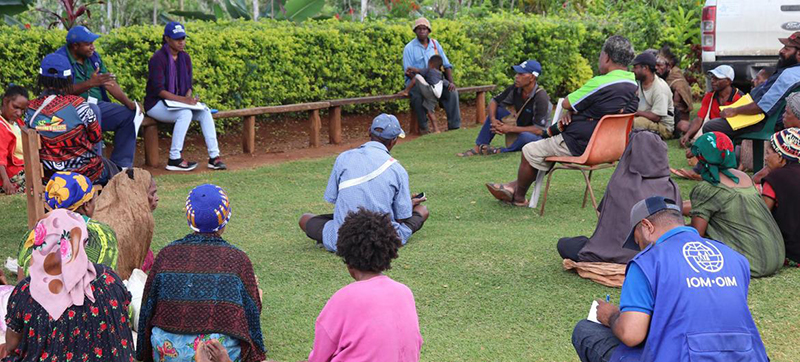 Papua New Guinea
Papua New Guinea Papua New Guinea: Conflict and election-related violence trigger wave of displacement
New York: Following conflict and election-related violence in Papua New Guinea, more than 15,000 people have been internally displaced in Hela, Southern Highlands and Enga provinces, the International Organization for Migration´s (IOM) said on Tuesday.
From 13 to 30 August, IOM partnered with local authorities in deploying its Displacement Tracking Matrix (DTM) team to track and monitor internal displacement and identify the needs of those most affected in the Highlands region.
As assessments in hard-to-access provinces continue, the total number of internally displaced persons (IDPs) is expected to rise.
Most immediate needs
While security has limited the ability to access several locations, food, water and sanitation, shelter, health, and protection were identified as those most needed.
IOM is scaling up emergency support to assist affected communities.
“We hope that the aid being provided by IOM, with the generous contributions of our donors, will alleviate some of the suffering and agony of the affected people among whom are many women, children, girls and boys, the elderly, and persons with disabilities,” said Serhan Aktoprak, the UN agency’s Chief of Mission in the country.
Kicking off clashes
Before July’s general election, violence began in Papua New Guinea in May and continued through August – with clashes during the days-long period of the election being most severe.
While the violence is directly related to the general election in most areas, in others, long-standing issues - including land disputes, retribution, and unsettled disputes between clans - have reignited conflicts during a time of instability.
Affected communities are reporting injuries, deaths, damage to food gardens, destruction of property, displacement, and disruption of education services.
Violent hotspots
In Porgera, Laiagam, and Kompiam districts from Enga province, Margarima district from Hela province, and Nipa district from Southern Highland Province, almost half of the total population – equivalent to 264,590 people or 49,175 households – have been affected by the ongoing conflict and election-related violence.
And in Enga, some 25,700 out-of-school children face a range of vulnerabilities.
Dangerous repercussions
The direct impact of the violence is a surge in trauma cases, particularly among victims of violence, including sexual violence.
Moreover, health centre closures, due to attacks or a lack of staff, will also leave almost 558,000 people without healthcare
Meanwhile, people requiring long-term treatment, such as HIV and tuberculosis patients, as well as those with non-communicable diseases, will not be able to access the medication they need for indefinite periods.
Answering the SOS
IOM, in partnership with the National Disaster Centre, and with support from USAID Bureau for Humanitarian Assistance (BHA) and the Australian Government, will deliver emergency assistance to the affected and most vulnerable populations including women, persons living with disabilities, and the elderly.
Emergency assistance materials pre-positioned for immediate delivery include shelter kits – consisting of tarpaulins, nails, hammers, and ropes – water treatment tablets, and mosquito nets.
So far, IOM has been able to distribute shelter kits to mostly women and children in 236 affected households in Mendi, Southern Highlands Province,.
Funded by USAID/BHA and the UN Peacebuilding Fund, the DTM tool provides response actors with critical data to inform evidence-based response and recovery planning targeting affected communities.
Support Our Journalism
We cannot do without you.. your contribution supports unbiased journalism
IBNS is not driven by any ism- not wokeism, not racism, not skewed secularism, not hyper right-wing or left liberal ideals, nor by any hardline religious beliefs or hyper nationalism. We want to serve you good old objective news, as they are. We do not judge or preach. We let people decide for themselves. We only try to present factual and well-sourced news.







